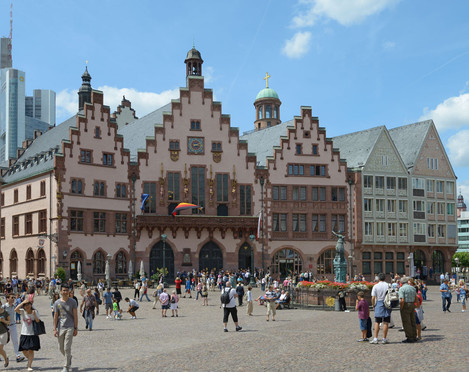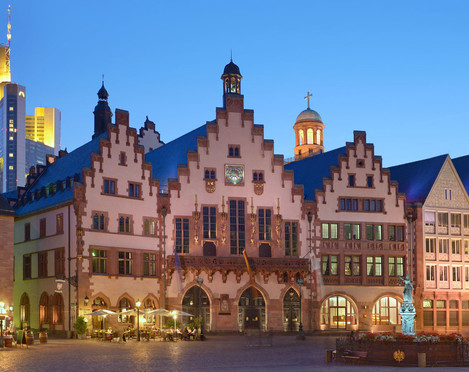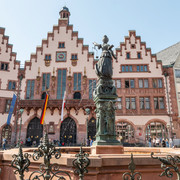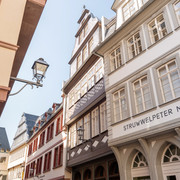This former patrician villa with its three-gabled roof has served as Frankfurt's city hall since 1405. It continues to be the seat of the city's Lord Mayor to this day.
The city's first town hall was soon too small to accommodate the needs of this flourishing city. It was torn down in 1415 prior to commencement of construction on the cathedral tower. The city council was initially accorded the right to build a new town hall in 1329. Finally, in 1405, the council decided to buy two existing houses instead. These two houses, named "Römer" and "Goldener Schwan", have served as the home of Frankfurt's town hall ever since. Large halls were constructed on the ground level and made available for lease during trade fairs. The Kaisersaal, or "Emperor's Hall", was built around 1612. The town hall complex formerly comprised 13 buildings. There are equally many hypotheses as regards to the origin of the name. One of them states that the merchant who lived there until the building was purchased by the city transacted the majority of his business with Italy, and in particular, Rome.
The city's first town hall was soon too small to accommodate the needs of this flourishing city. It was torn down in 1415 prior to commencement of construction on the cathedral tower. The city council was initially accorded the right to build a new town hall in 1329. Finally, in 1405, the council decided to buy two existing houses instead. These two houses, named "Römer" and "Goldener Schwan", have served as the home of Frankfurt's town hall ever since. Large halls were constructed on the ground level and made available for lease during trade fairs. The Kaisersaal, or "Emperor's Hall", was built around 1612. The town hall complex formerly comprised 13 buildings. There are equally many hypotheses as regards to the origin of the name. One of them states that the merchant who lived there until the building was purchased by the city transacted the majority of his business with Italy, and in particular, Rome.
Nearby




